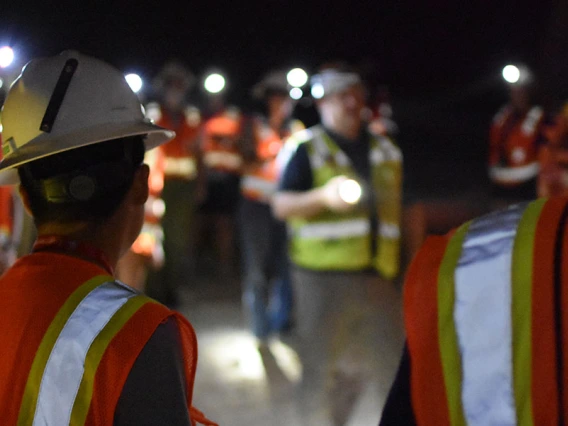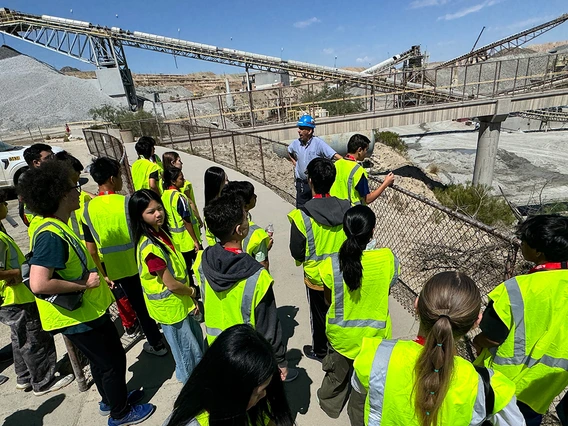Future engineers tackle brain imaging, drug delivery at KEYS Showcase
Summer internships give incoming students the opportunity to work with college faculty on research in medical imaging and cancer treatment.
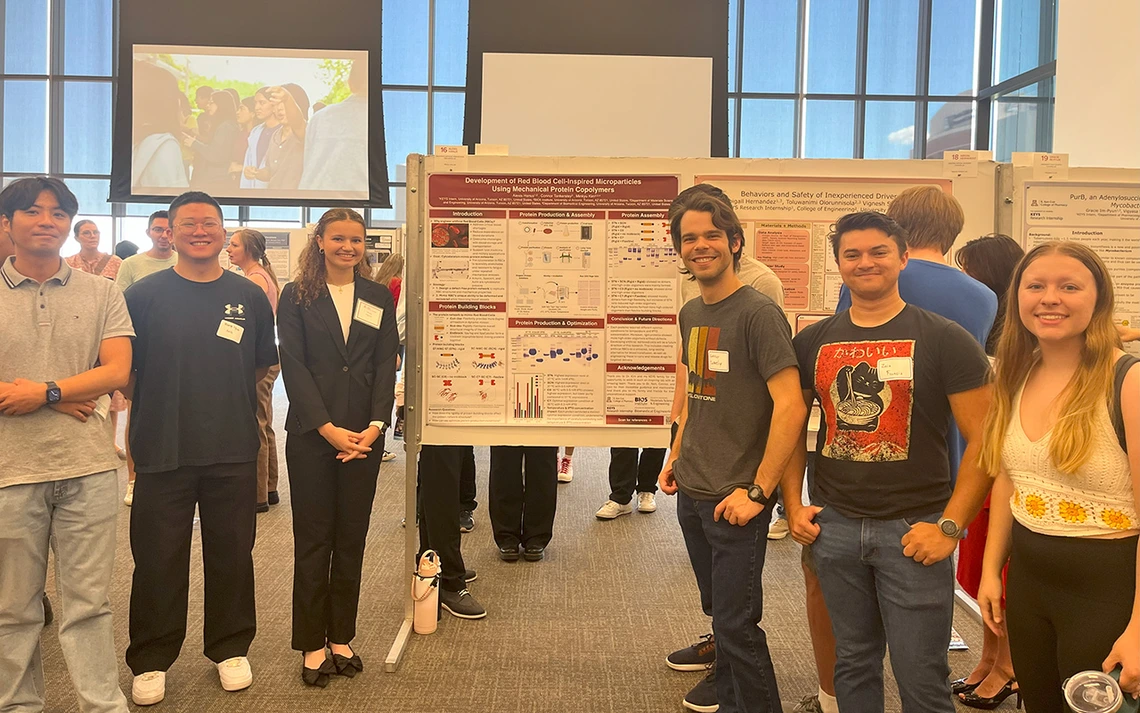
Materials science and engineering associate professor Minkyu Kim’s KEYS intern, Alexis Hanus (left of poster), presents research on developing artificial blood to address national shortages at blood banks.
Students admitted to the College of Engineering for the fall semester stood out at the BIO5 Institute's 19th annual KEYS Research Internship Showcase on July 18.
The event marked the culmination of the Institute’s Keep Engaging Youth in Science (KEYS) program, which brought 65 high school students from 35 Arizona schools to the University of Arizona for summer internships in laboratory settings.
“KEYS is a great opportunity to show young minds, who are just starting to learn what biomedical research is, the state-of-the-art programs that we have built in the past years,” said Nan-Kuei Chen, associate professor of biomedical engineering and first-time KEYS mentor.
Two recent high school graduates mentored by Chen and Swarna Ganesh, assistant professor of biomedical engineering, capped their internships with poster presentations on technology aimed at diagnosing neurodegenerative diseases and a drug delivery tool for cancer treatment.
Imaging brain fluid to diagnose disease
Kapil Inguva, from Arizona College Prep High School, presented “Investigation of Functional MRI Methods and Applications to Studies of the Glymphatic System” in collaboration with Chen.
He explored the relationship between cerebrospinal fluid flow and brain activity using MRI methods.
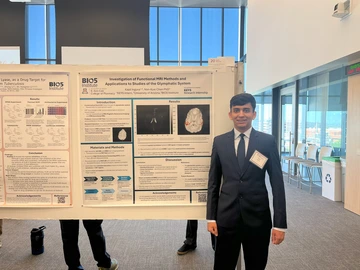
Kapil Inguva researches MRI methods in the lab of Nan-Kuei Chen, associate professor of biomedical engineering.
“I was analyzing the glymphatic system of the brain,” Inguva said. “I saw how cerebrospinal fluid was flowing through the brain, which can help with diagnosing and preventing neurodegenerative diseases like Alzheimer's and Parkinson's.”
Inguva developed MATLAB code to extract biological information from 4D brain MRI data, which was used to create virtual models for analyzing differences in brain activity and cerebrospinal fluid volume. The work helped identify brain regions that may reveal a link between fluid levels and disease prevention.
“Kapil’s project is expected to produce new knowledge that links neuronal activity and the recently discovered glymphatic system,” Chen said. “That is responsible for clearing brain waste and maintaining brain health.”
Inguva, who will join the college this fall, said the lab experience sparked his interest in biomedical engineering.
“I learned so much from Dr. Chen,” he said. “I knew absolutely nothing about MRI when I started, and by the end of the program, I learned so much about the brain.”
Delivering tumor-fighting drugs
Ganesh, also a first-time KEYS mentor, worked with Canyon Del Oro High School student Avery Eliscu on “Investigating Biomaterials for Degradable Drug Delivery Scaffolds.”
In Ganesh’s lab, they built scaffolds with synthetic polymers aimed at targeting tumors in the body.
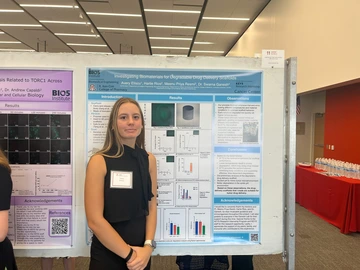
Avery Eliscu presents research on cancer-fighting drug scaffolds at the 19th annual KEYS showcase.
“A scaffold holds a drug together and then delivers it to a tumor,” Eliscu said. “We put the scaffold on a tumor, and the drug is slowly released as the scaffold degrades. Theoretically, the drug would get rid of the tumor.”
Eliscu, who will join the college in the fall, plans to pursue a career in biomedical engineering and develop technology for cancer treatment.
A boon to students and professors
With more than 700 alumni, the KEYS internship has opened doors to research opportunities for Arizona high school students for nearly 20 years while connecting engineering faculty with prospective students.
“One important thing that drew me to the University of Arizona was the KEYS internship,” Ganesh said. “Research should be done at a very young age. That was the main reason why I joined as a mentor this year.”
Other engineering faculty participants and BIO5 members included biomedical engineering’s Alex McGhee, Elizabeth Hutchinson, Jennifer Barton, Jeong-Yeol Yoon, Philipp Gutruf and Vignesh Subbian, as well as materials science and engineering associate professor Minkyu Kim.
“I plan to return every year for this incredible program.”


